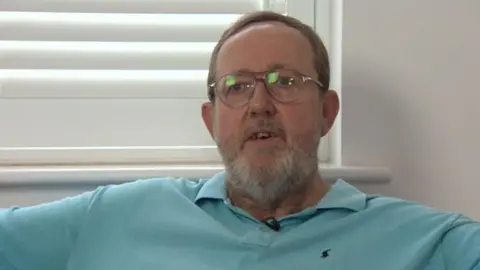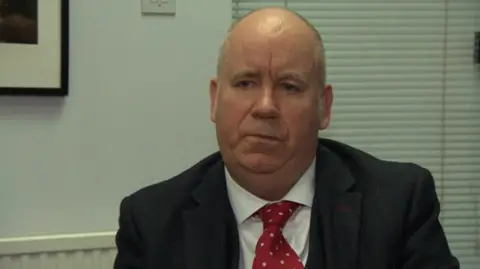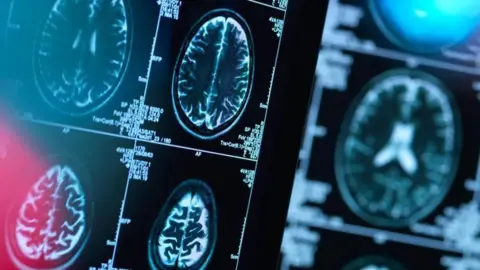Brain op failings at trust for more than decade
 BBC
BBCFailings in a service at an NHS trust that led to probes being located in the wrong part of patients' brains have gone on for more than a decade, the BBC can reveal.
One University Hospitals Birmingham patient, who underwent deep brain stimulation (DBS), became suicidal after his Parkinson’s symptoms worsened following surgery, but he wasn’t told of the location errors for nearly eight years.
The fourth time the trust restarted the DBS programme in 2017, there was no plan or audit in place, although this was a requirement, the BBC has found.
The trust said it had instigated internal and external reviews to understand the complexities of DBS services and was supporting patients.

DBS is used on patients with conditions like Parkinson's and dystonia, where medication is becoming less effective.
A previous BBC investigation into the treatment showed that of 22 operations between 2017 and 2019, only three were in a good position in a patient's brain.
The BBC has now identified five patients with problems, whose surgery predates 2017.
A 59-year-old man, operated on in July 2015, was only recently told probes were put in the wrong place.
His solicitor, Tom Barnes, said that following surgery the patient's speech became more slurred and he was unable to walk.
Mr Barnes said there was awareness by November that year that a CT scan showed electrodes had been poorly placed, but his client was not informed.
 Getty Images
Getty ImagesIn a clinic letter in May 2016 Ros Mitchell, who hadn’t performed the operation, wrote the “electrodes were placed where the surgeon intended.”
But it was only after a further MRI scan in October the following year when it was noted the electrodes were more than 3mm away from where they should have been.
They were removed in December 2018, but the patient was under the impression that he was a non-responder until he received a letter with the details in February 2023.
Mr Barnes said: “It turned his life upside down. He went for a position where he needed some support at work, to his wife having to give up work to look after him.”
Chris Tyler, from Coventry, underwent DBS in 2017 and again in 2019 - both times where the probes were misplaced and had to be removed.
The misplacement led to slurred speech and poor movement and he was forced to give up his job.
A serious incident investigation into his case, revealed that the DBS service had been restarted for a fourth time and was dependent on a standard operating procedure being in place.
'Culture of failure'
But a draft standard operating procedure was only completed after the service was again suspended in October 2019.
The report stated delays in informing Mr Tyler, with the impact on his health classed as "severe."
The service, it said, was affected by allegations between members of the team in relation to incompetence, bullying and dishonesty, leading to an atmosphere of mistrust.
Mr Tyler has since had a fifth operation, this time in Oxford, where the electrodes were located in the right place and has completely stopped his tremors.
“I have had four unnecessary surgeries with all the stroke risks," he said.
"There was a culture of failure and a culture of not wanting to take responsibility for what happened and I feel a bit betrayed."
A spokesperson for UHB said it could not comment on individual cases because of on-going legal processes.
All DBS patients have now received an independent review and reviews were also looking at interpersonal and departmental issues.
The trust added it remained committed to ensuring DBS remained available to patients in the West Midlands.
Follow BBC West Midlands on Facebook, X, and Instagram, Send your story ideas to: [email protected]
